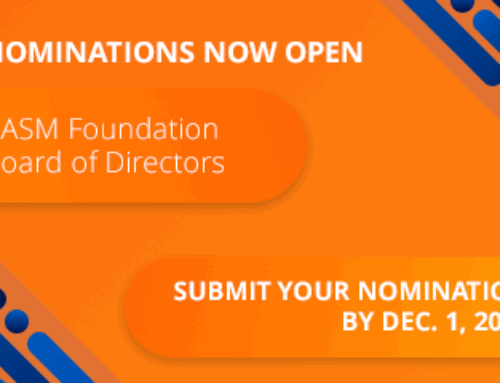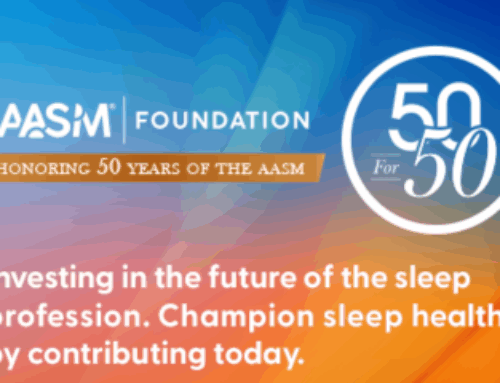The American Academy of Sleep Medicine Foundation congratulates the recipients of the 2025 Trainee Investigator Award. They will be recognized during the AASM Foundation Impact Mixer, held at SLEEP 2025 in Seattle.
The award program is open to students, postdoctoral researchers, residents, and other trainees presenting abstracts at the SLEEP annual meeting of the Associated Professional Sleep Societies (APSS). Each abstract was reviewed by the AASM Foundation’s Research Career Development Committee, and the highest-scoring abstracts were selected for recognition.
The first-place winner received a $1,000 award, and $500 was awarded to each of the honorable mention recipients. Their abstracts will be published in the SLEEP 2025 abstract supplement.
Trainee Investigator Award Recipient
 Jing Wang, MS
Jing Wang, MS
Research Trainee, Brigham and Women’s Hospital
The associations between indoor nitrogen dioxide (NO2) exposure and adverse pediatric sleep outcomes
Jing Wang is a PhD student in environmental epidemiology at the Harvard T.H. Chan School of Public Health. She also works in the Division of Sleep and Circadian Disorders at Brigham and Women’s Hospital. Her research focuses on applying causal inference and advanced quantitative methods to investigate both the individual and joint effects of environmental exposures on sleep health, particularly the roles of air pollution, the built environment, and extreme weather events in relation to obstructive sleep apnea. She is passionate about translating epidemiological findings into actionable interventions to reduce sleep health disparities and improve population well-being.
“Receiving the Trainee Investigator Award is a deeply meaningful recognition of my efforts to advance research at the intersection of environmental health and sleep and circadian rhythm science. This award not only affirms the significance of investigating how environmental exposures shape sleep health, but also empowers me to continue building a research career committed to reducing sleep health disparities through rigorous, policy-relevant science.”
Honorable Mentions
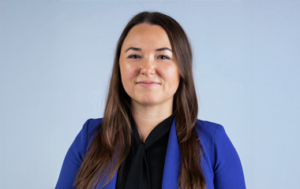 Samantha A. Keil, PhD
Samantha A. Keil, PhD
Senior Postdoctoral Associate, Weill Cornell Medicine
Increased Aβ deposition following chronic sleep disruption correlates with altered gliosis and AQP4 in 5xFAD mice
Dr. Samantha Keil is a postdoctoral associate and translational neuroscientist investigating the role sleep health plays in neurodegenerative disease progression. Integrating her preclinical and clinical research, she aims to define how sleep regulates brain fluid clearance across neurodegenerative disease states, such as Alzheimer’s Disease. Her current work aims to establish the impact of chronically disrupted sleep/untreated obstructive sleep apnea on glymphatic function. In the future, Dr. Keil’s research program will utilize multimodal neuroimaging to evaluate the interplay of sleep and brain fluid clearance dynamics across disease modalities, bridging mechanistic insight with clinical translation to inform preventative and therapeutic strategies.
“I’m honored to receive recognition as a Trainee Investigator Award from the AASM Foundation. This award not only encourages my continued growth as an early career investigator, but affirms the impact of my work at the intersection of sleep and neurodegeneration. I’m especially excited for the opportunity to share my findings, connecting with the leaders in the field to further integrate clinical and research perspectives in sleep medicine.”
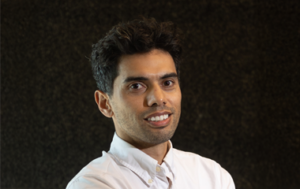 Josh Leota, PhD
Josh Leota, PhD
Research Fellow, Monash University
How many nights are enough? A pre-registered study examining the reliability of sleep intraindividual variability derived from 10,412 normal sleepers
Dr. Josh Leota is a research fellow in the School of Psychological Sciences at Monash University, specializing in sleep, circadian rhythms, and physical activity. His research combines wearable technology and large-scale cohort data to investigate how behavioral timing, such as when we sleep or exercise, affects health, performance, and recovery. His work aims to uncover modifiable, time-based behavioral patterns to inform personalized interventions and improve health outcomes at both individual and population levels.
“I’m honored that our work has been recognized. This award reflects our team’s efforts and motivates us to keep pushing forward in sleep and circadian research.”
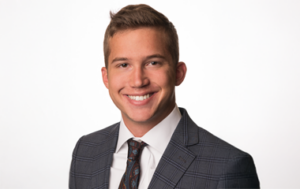 Zachary K. Oatley, BS
Zachary K. Oatley, BS
Medical Student & Senior Research Assistant, Northeast Ohio Medical School
A Machine Learning Approach for Targeted Obstructive Sleep Apnea Case-Finding in Outpatient Clinics
Zachary Oatley is a second-year medical student who became interested in sleep medicine after his own diagnosis of unrecognized obstructive sleep apnea. He founded Dream AI, a startup developing machine learning tools for early apnea detection, and personally developed the code behind its predictive algorithms. The project led to milestone funding, a utility patent, and a clinical validation study. Zach is also a committed student advocate who has led national efforts to modernize medical education.
“The work I’m presenting at SLEEP 2025 began nearly three years ago as a simple idea. At the time, I had no experience in machine learning—so being recognized by the AASM Foundation truly validates the hard work, late nights, and learning it took to bring this project to life.”


